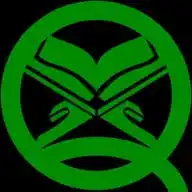Islamic Etiquettes
39 subscribers
About Islamic Etiquettes
As-Salam Alaikum WarahmatuLahi Wabarakatuh Yah Ikhwatul-Kareem wa Akhawatul-Kareemah. In a world where Shayton have taken over the heart of men, where nudity have become norms and where children are enmeshed in drug and ritualism. In the Glorious Quran Al-'Asr 103:2 By Al-`Asr. , Verily, man is in loss. Al-`Asr is the time in which the movements of the Children of Adam occur, whether good or evil. Malik narrated from Zayd bin Aslam that he said, "It is the evening." However, the first view is the popular opinion. Thus, Allah swears by this, that man is in خُسْرٍ (Khusr), which means in loss and destruction. Are we in the end of time? Only Allah knows but the signs are there for us to see. This channel teaches Islamic etiquettes as establish by Allah and preaches and teaches by His Prophet (صلى الله عليه وسلام). We pray Allah in His infinite Mercy to keep us and our household from Satan and keep us firm on His religion and if we are to die, we should died as a Muslim.
Similar Channels
Swipe to see more
Posts
Al-Hujurat 49:1 يَٰٓأَيُّهَا ٱلَّذِينَ ءَامَنُواْ لَا تُقَدِّمُواْ بَيۡنَ يَدَيِ ٱللَّهِ وَرَسُولِهِۦۖ وَٱتَّقُواْ ٱللَّهَۚ إِنَّ ٱللَّهَ سَمِيعٌ عَلِيمٞ Tafsir Ibn Kathir Which was revealed in Al-Madinah بِسْمِ اللَّهِ الرَّحْمَـنِ الرَّحِيمِ In the Name of Allah, the Most Gracious, the Most Merciful. The Prohibition of making a Decision in advance of Allah and His Messenger; ordering Respect towards the Prophet In these Ayat, Allah the Exalted teaches His faithful servants the good manners they should observe with the Messenger ﷺ, which are respect, honor and esteem. Allah the Exalted and Most Honored said, يأَيُّهَا الَّذِينَ ءَامَنُواْ لاَ تُقَدِّمُواْ بَيْنَ يَدَىِ اللَّهِ وَرَسُولِهِ (O you who believe! Make not (a decision) in advance before Allah and His Messenger,) meaning, do not rush in making decisions before him, rather, follow his lead in all matters. `Ali bin Abi Talhah reported that Ibn `Abbas, may Allah be pleased with him, commented; لاَ تُقَدِّمُواْ بَيْنَ يَدَىِ اللَّهِ وَرَسُولِهِ (Make not (a decision) in advance before Allah and His Messenger,) "Do not say anything that contradicts the Qur'an and Sunnah." Qatadah commented, "We were told that some people used to say, `Revelation should be sent down about such and such matters,' and, `such and such practices should be rendered allowed.' Allah the Exalted disliked this attitude." Allah said, وَاتَّقُواْ اللَّهَ (and have Taqwa of Allah.) meaning, `in what He has ordered you;' إِنَّ اللَّهَ سَمِيعٌ (Verily, Allah is Hearing,) `your statements,' عَلِيمٌ (Knowing.) `your intentions.' Allah said, يأَيُّهَا الَّذِينَ ءَامَنُواْ لاَ تَرْفَعُواْ أَصْوَتَكُمْ فَوْقَ صَوْتِ النَّبِىِّ (O you who believe! Raise not your voices above the voice of the Prophet,) This contains another kind of favorable behavior. Allah the Exalted is teaching the believers that they should not raise their voices above the voice of the Prophet . It was stated that this Ayah was revealed about Abu Bakr and `Umar. Al-Bukhari recorded that Ibn Abi Mulaykah said, "The two righteous ones, Abu Bakr and `Umar, almost earned destruction when they raised their voices before the Prophet who was receiving the delegation of Bani Tamim. One of them recommended Al-Aqra` bin Habis the member of the Banu Mujashi` while the other recommended another man. Nafi` (a subnarrator) said: "I don't remember his name." Abu Bakr said to `Umar, `You only wanted to contradict me,' while `Umar said, `I did not intend to contradict you.' Their voices then became loud, thereupon Allah the Exalted sent down this Ayah, يأَيُّهَا الَّذِينَ ءَامَنُواْ لاَ تَرْفَعُواْ أَصْوَتَكُمْ فَوْقَ صَوْتِ النَّبِىِّ وَلاَ تَجْهَرُواْ لَهُ بِالْقَوْلِ كَجَهْرِ بَعْضِكُمْ لِبَعْضٍ أَن تَحْبَطَ أَعْمَـلُكُمْ وَأَنتُمْ لاَ تَشْعُرُونَ (O you who believe! Raise not your voices above the voice of the Prophet, nor speak aloud to him in talk as you speak aloud to one another, lest your deeds should be thwarted while you perceive not.)" `Abdullah bin Az-Zubayr said, "After that, `Umar's voice was so low that the Messenger of Allah ﷺ had to ask him to repeat what he said so that he could understand what he was saying to him." `Abdullah bin Az-Zubayr did not mention the same regarding his father, Abu Bakr, may Allah be pleased with him. Muslim did not collect this Hadith. In another narration collected by Al-Bukhari, he said that a delegation from the tribe of Banu Tamim came to the Prophet and that Abu Bakr recommended Al-Qa`qa` bin Ma`bad to be appointed as their leader, while `Umar recommended Al-Aqra` bin Habis. Muslim did not collect this narration. Al-Bukhari recorded that Anas bin Malik said, "The Prophet missed Thabit bin Qays and a man said, `O Allah's Messenger! I will find out about his news.' That man went to Thabit and found him sitting at home with his head lowered and asked him, `What is the matter' Thabit said, `An evil matter!' And he said that he used to raise his voice above the voice of the Prophet . He feared that his good deeds would be useless and he would be among the people of the Fire. The man went back to the Prophet and conveyed Thabit's statement and returned to Thabit with a wonderfully good news. The Prophet said, «اذْهَبْ إِلَيْهِ فَقُلْ لَهُ: إِنَّكَ لَسْتَ مِنْ أَهْلِ النَّارِ، وَلَكِنَّكَ مِنْ أَهْلِ الْجَنَّة» (Go back to him and tell him this news; you are not among the people of the Fire. Rather, you are among the dwellers of Paradise.)" Al-Bukhari collected this Hadith with this wording. Imam Ahmad recorded that Anas bin Malik said, "When this Ayah was revealed, يأَيُّهَا الَّذِينَ ءَامَنُواْ لاَ تَرْفَعُواْ أَصْوَتَكُمْ فَوْقَ صَوْتِ النَّبِىِّ (O you who believe! Raise not your voices above the voice of the Prophet), until, وَأَنتُمْ لاَ تَشْعُرُونَ (while you perceive not), Thabit bin Qays bin Ash-Shammas, whose voice was loud, said, `I was the one who raised his voice above the voice of Allah's Messenger ﷺ. I am among the dwellers of the Fire. My good deeds have been done in vain.' He remained in his house feeling distressed, and the Messenger of Allah ﷺ noticed his absence. So some men went to Thabit and said to him, `The Prophet noticed your absence. What is the matter with you' Thabit said, `I used to raise my voice above the voice of the Prophet and speak loudly in front of him. My deeds have been rendered useless and I am among the people of the Fire.' They went to the Prophet and told him what Thabit said and the Prophet said, «لَا، بَلْ هُوَ مِنْ أَهْلِ الْجَنَّة» (Nay, he is among the dwellers of Paradise.)" Anas commented, "We used to see Thabit walk among us knowing that he was (to be) among the dwellers of Paradise. During the battle of Yamamah, our forces suffered retreat. Suddenly, Thabit bin Qays bin Shammas came, having put on his Hanut and shrouds, and said, `The worst habit is the one you acquire from your enemy and do not set a bad example for your companions.' And he went on fighting until he was martyred, may Allah be pleased with him." Allah then prohibited speaking to the Prophet in a loud voice, just as one speaks loudly to another in a way that offends him. Instead, they were required to speak to him in terms of respect, honor and calmness. This is why Allah the Exalted and Most Honored said, وَلاَ تَجْهَرُواْ لَهُ بِالْقَوْلِ كَجَهْرِ بَعْضِكُمْ لِبَعْضٍ (nor speak aloud to him in talk as you speak aloud to one another,) just as He said in another Ayah, لاَّ تَجْعَلُواْ دُعَآءَ الرَّسُولِ بَيْنَكُمْ كَدُعَآءِ بَعْضِكُمْ بَعْضاً (Make not the calling of the Messenger among you as your calling one of another.) (24:63) Allah's statement, أَن تَحْبَطَ أَعْمَـلُكُمْ وَأَنتُمْ لاَ تَشْعُرُونَ (lest your deeds should be thwarted while you perceive not.) means, `We ordered you to refrain from raising your voices to the Prophet , so that he will not get angry with you, because in doing so, you will also anger Allah.' The good deeds of he who caused the Prophet's anger will become useless without him even knowing. In the Sahih, there is a Hadith that states, «إِنَّ الرَّجُلَ لَيَتَكَلَّمُ بِالْكَلِمَةِ مِنْ رِضْوَانِ اللهِ تَعَالَى لَا يُلْقِي لَهَا بَالًا، يُكْتَبُ لَهُ بِهَا الْجَنَّةُ، وَإِنَّ الرَّجُلَ لَيَتَكَلَّمُ بِالْكَلِمَةِ مِنْ سَخَطِ اللهِ تَعَالَى لَا يُلْقِي لَهَا بَالًا، يَهْوِي بِهَا فِي النَّارِ أَبْعَدَ مَا بَيْنَ السَّمَاءِ وَالْأَرْض» (Verily, a man might utter a word that pleases Allah the Exalted, even though he does not recognize the significance of his word, and on its account Paradise is written for him. Verily, a man might utter a word carelessly that angers Allah the Exalted, and on its account, he is cast in the Fire farther than the distance between the heavens and earth.) Allah then ordains lowering one's voice before the Messenger ﷺ and encourages, directs and recommends this better behavior. إِنَّ الَّذِينَ يَغُضُّونَ أَصْوَتَهُمْ عِندَ رَسُولِ اللَّهِ أُوْلَـئِكَ الَّذِينَ امْتَحَنَ اللَّهُ قُلُوبَهُمْ لِلتَّقْوَى (Verily, those who lower their voices in the presence of Allah's Messenger ﷺ, they are the ones whose hearts Allah has tested for Taqwa.) whose hearts have been purified by Allah and made as a residence and dwelling for the Taqwa, لَهُم مَّغْفِرَةٌ وَأَجْرٌ عَظِيمٌ (For them is forgiveness and a great reward.) Imam Ahmad recorded in the Book of Az-Zuhd that Mujahid said, "Someone wrote to `Umar, `O Leader of the faithful! Who is better, a man who does not feel the desire to commit a sin and does not commit it, or a man who feels desire to commit a sin, but does not commit it' `Umar replied, `He who feels desire to commit a sin, but does not commit it, أُوْلَـئِكَ الَّذِينَ امْتَحَنَ اللَّهُ قُلُوبَهُمْ لِلتَّقْوَى لَهُم مَّغْفِرَةٌ وَأَجْرٌ عَظِيمٌ (they are the ones whose hearts Allah has tested for Taqwa. For them is forgiveness and a great reward.)"'
They replied, “al-muflis (ie: the bankrupt) among us is one who has neither money with him nor any property.” قالوا: المفلس من لا درهم عنده ولا متاع… they thought he was asking about the bankrupt people of al-dunyā (ie: the world) so they said: “The bankrupt among us is one who has neither money with him nor any property.” ظنوا أنه يريد مفلس الدنيا، ظنوا انه يسأل او ان ارى ظنوا انه يريد مفلس الدنيا قالوا من الدنيا ما عنده ولا متاع But he ﷺ was asking about the muflis of the Hereafter, ولكنه يريد مفلس الآخرة، and such a person is the one who is al-muflis ḥaqqan (ie: truly bankrupt). وهو المفلس حقًّا، Meaning: a bankrupt person in the world is [indeed] muflis but the one who is even more muflis than him is the one of the Hereafter. يعني مفلس الدنيا مفلس ولكن أشد إفلاسًا منه مفلس الآخرة. So who is the muflis of the Hereafter? من هو مفلس الآخرة؟ He ﷺ said, “(The real bankrupt of my ummah would be he who will come on the Day of Resurrection with ṣalāt (ie: prayer), قال عليه الصلاة والسلام: "الذي يأتي يوم القيامة بصلاة wa zakāh wa ṣiyām (ie: charity and fasting), وزكاة وصيام، (but he will find himself bankrupt on that day as he will have exhausted the good deeds) because he reviled, brought calumny, unlawfully devoured the wealth of, shed the blood of, and beat others. ويأتي وقد شتم هذا وضرب هذا، وسفك دم هذا، وأخذ مال هذا؛ So his ḥasanāt (ie: good deeds) would be credited to the account of those (who suffered at his hand). فيُعطى هذا من حسناته، وهذا من حسناته، If his ḥasanāt fall short to clear the account, فإن فنيت حسناته قبل أن [يُقضى ما] عليه؛ their sins would be entered in his account and he would be thrown in al-Nār (ie: the Fire).” أخذ من سيئاتهم فطُرحت عليه، ثم طرح في النار". So this person who made such evil, ugly statements about this lofty scholar has only wronged and harmed himself. يعني: هذا الذي يتكلم بمثل هذا الكلام السيئ القبيح في هذا العلام الجليل إنما يجني على نفسه، ويلحق الضرر بنفسه، And none of that hurts al-Shaykh al-Albānī, ولا يضر الشيخ الألباني بشيء من ذلك؛ its harm goes back to the one who made the statements, وإنما ضرره عائد على نفسه، the harm will not reach al-Albānī, وليس واصلًا إلى الألباني هذا الضرر؛ al-Albānī will receive good and righteous deeds because of this crime against him from that person who has set loose his tongue against him by making statements such as these which do not befit or emanate from a person who has any ʿaql (ie: intellect). وإنما هو خير وحسنات تحصل للألباني بسبب هذه الجناية عليه ممن يُطلق لسانه بمثل هذا الكلام الذي لا يليق ولا يصدر من إنسان عنده عقل!!". ʿAbd al-Muḥsin al-ʿAbbād, Sharḥ Ṣaḥīḥ Muslim 85/3527 عبد المحسن العباد، شرح صحيح مسلم ٨٥/٣٥٢٧
(The Messenger of Allah ﷺ said): “There will never cease to be a group from my ummah manifest upon the truth, they will not be harmed by those who forsake them until Allah's Decree comes while they are upon that.” " لا تزال طائفة من أمتي ظاهرين على الحق لا يضرهم من خذلهم حتى يأتي أمر الله وهم كذلك ". Reported by Muslim, Abū Dāwūd, al-Tirmiḏī, Ibn Mājah, Aḥmad, and also al-Ḥākim on the authority of Thawbān who ascribed it (to the Prophet ﷺ). أخرجه مسلم (6/52 - 53) وأبو داود (2/202) والترمذي (2/36) وابن ماجة (2/464 - 465) وأحمد (5/278 - 279) والحاكم أيضا (4/449 - 450) من حديث ثوبان مرفوعا. And there is a report with an addition in the wording: “A group from my ummah will continue to remain adherent upon the dīn (ie: religion) prevailing over their adversaries. وروى الحديث بزيادة فيه بلفظ: " لا تزال طائفة من أمتي على الدين ظاهرين، لعدوهم قاهرين Those who oppose them will not harm them, except for [occasional] hardships, لا يضرهم من خالفهم إلا ما أصابهم من لأواء until the command of Allah comes while they are in that state.” حتى يأتيهم أمر الله وهم كذلك، They asked, “O Messenger of Allah, where will they be?” قالوا: وأين هم؟ He said: “In Bayt al-Maqdis and its outskirts.” قال: ببيت المقدس وأكناف بيت المقدس ". Reported by ʿAbd Allah b. al-Imām Aḥmad in his Musnad. رواه عبد الله بن الإمام أحمد في " المسند " (5/269) Muḥammad Nāṣir ʾl-Dīn al-Albānī, Silsilah al-Aḥādīth al-Ṣaḥīḥah 4/599 #1957 محمد ناصر الدين الألباني، السلسلة الصحيحة ٤/٥٩٩ #١٩٥٧ https://shamela.ws/book/9442/2802
Al-Buruj 85:1 وَٱلسَّمَآءِ ذَاتِ ٱلۡبُرُوجِ Tafsir Ibn Kathir Which was revealed in Makkah بِسْمِ اللَّهِ الرَّحْمَـنِ الرَّحِيمِ (In the Name of Allah, the Most Gracious, the Most Merciful. The Interpretation of the Word Buruj Allah swears by the heaven and its Buruj. The Buruj are the giant stars, as Allah says, تَبَارَكَ الَّذِى جَعَلَ فِى السَّمَآءِ بُرُوجاً وَجَعَلَ فِيهَا سِرَاجاً وَقَمَراً مُّنِيراً (Blessed is He Who has placed in the heaven Buruj, and has placed therein a great lamp (the sun), and a moon giving light.) (25:61) Ibn `Abbas, Mujahid, Ad-Dahhak, Al-Hasan, Qatadah and As-Suddi, all said, "Al-Buruj are the stars." Al-Minhal bin `Amr said, وَالسَّمَآءِ ذَاتِ الْبُرُوجِ (By the heaven holding the Buruj.) "The beautiful creation." Ibn Jarir chose the view that it means the positions of the sun and the moon, which are twelve Buruj. The sun travels through each one of these "Burj" (singular of Buruj) in one month. The moon travels through each one of these Burj in two-and-a-third days, which makes a total of twenty-eight positions, and it is hidden for two nights. The Explanation of the Promised Day and the Witness and the Witnessed Allah says, وَالْيَوْمِ الْمَوْعُودِ - وَشَـهِدٍ وَمَشْهُودٍ (And by the Promised Day. And by the Witness, and by the Witnessed.) Ibn Abi Hatim recorded from Abu Hurayrah that the Messenger of Allah ﷺ said, وَالْيَوْمِ الْمَوْعُودِ يَوْمُ الْقِيَامَةِ وَشَهِدَ يَوْمُ الْجُمُعَةِ، وَمَا طَلَعَتْ شَمْسٌ وَلَا غَرَبَتْ عَلَى يَوْمٍ أَفْضَلَ مِنْ يَوْمِ الْجُمُعَةِ، وَفِيهِ سَاعَةٌ لَا يُوَافِقُهَا عَبْدٌ مُسْلِمٌ يَسْأَلُ اللهَ فِيهَا خَيْرًا إِلَّا أَعْطَاهُ إِيَّاهُ، وَلَا يَسْتَعِيذُ فِيهَا مِنْ شَرَ إِلَّا أَعَاذَهُ. وَمَشْهُودٍ يَوْمُ عَرَفَة» (And by the Promised Day.)( This refers to the Day of Judgement. (And by the Witness.) This refers to Friday, and the sun does not rise or set on a day that is better than Friday. During it there is an hour that no Muslim servant catches while asking Allah from some good except that Allah will give it to him. He does not seek refuge from any evil in it except that Allah will protect him. (And by the Witnessed.)( This refers to the day of `Arafah (in Hajj).) Ibn Khuzaymah also recorded the same Hadith. It has also been recorded as a statement of Abu Hurayrah and it is similar (to this Hadith). Imam Ahmad recorded from Suhayb that the Messenger of Allah ﷺ said, Allah's statement, قُتِلَ أَصْحَـبُ الاٍّخْدُودِ (Cursed were (Qutila) the People of the Ditch (Ukhdud).) meaning, the companions of the Ukhdud were cursed. The plural of Ukhdud is Akhadid, which means ditches in the ground. This is information about a group of people who were among the disbelievers. They went after those among them who believed in Allah and they attempted to force them to give up their religion. However, the believers refused to recant, so they dug a ditch for them in the ground. Then they lit a fire in it and prepared some fuel for it in order to keep it ablaze. Then they tried to convince them (the believers) to apostate from their religion (again), but they still refused them. So they threw them into the fire. Thus, Allah says, قُتِلَ أَصْحَـبُ الاٍّخْدُودِ - النَّارِ ذَاتِ الْوَقُودِ - إِذْ هُمْ عَلَيْهَا قُعُودٌ - وَهُمْ عَلَى مَا يَفْعَلُونَ بِالْمُؤْمِنِينَ شُهُودٌ (Cursed were the People of the Ditch. Of fire fed with fuel. When they sat by it. And they witnessed what they were doing against the believers.) meaning, they were witnesses to what was done to these believers. Allah said, وَمَا نَقَمُواْ مِنْهُمْ إِلاَّ أَن يُؤْمِنُواْ بِاللَّهِ الْعَزِيزِ الْحَمِيدِ (And they had no fault except that they believed in Allah, the Almighty, Worthy of all praise!) meaning, they did not commit any sin according to these people, except for their faith in Allah the Almighty, Who does not treat unjustly those who desire to be with Him. He is the Most Mighty and Most Praiseworthy in all of His statements, actions, legislation, and decrees. He decreed what happened to these servants of His at the hands of the disbelievers - and He is the Most Mighty, the Most Praiseworthy - even though the reason for this decree is unknown to many people. Then Allah says, الَّذِى لَهُ مُلْكُ السَّمَـوَتِ وَالاٌّرْضِ (To Whom belongs the dominion of the heavens and the earth!) Among His perfect Attributes is that He is the Owner of all of the heavens, the earth, whatever is in them, and whatever is between them. وَاللَّهُ عَلَى كُلِّ شَىْءٍ شَهِيدٌ (And Allah is Witness over everything.) meaning, nothing is concealed from Him in all of the heavens and the earth, nor is anything hidden from Him. The Story of the Sorcerer, the Monk, the Boy and Those Who were forced to enter the Ditch Imam Ahmad recorded from Suhayb that the Messenger of Allah ﷺ said, «كَانَ فِيمَنْ كَانَ قَبْلَكُمْ مَلِكٌ وَكَانَ لَهُ سَاحِرٌ، فَلَمَّا كَبِرَ السَّاحِرُ قَالَ لِلْمَلِكِ: إِنِّي قَدْ كَبُرَ سِنِّي وَحَضَرَ أَجَلِي، فَادْفَعْ إِلَيَّ غُلَامًا لِأُعَلِّمَهُ السِّحْرَ، فَدَفَعَ إِلَيْهِ غُلَامًا فَكَانَ يُعَلِّمُهُ السِّحْرَ، وَكَانَ الْغُلَامُ عَلَى الرَّاهِبِ فَسَمِعَ مِنْ كَلَامِهِ فَأَعْجَبَهُ نَحْوُهُ وَكَلَامُهُ، وَكَانَ إِذَا أَتَى السَّاحِرَ ضَرَبَهُ وَقَالَ: مَا حَبَسَكَ؟ وَإِذَا أَتَى أَهْلَهُ ضَرَبُوهُ وَقَالُوا: مَا حَبَسَكَ؟ فَشَكَا ذلِكَ إِلَى الرَّاهِبِ فَـقَالَ: إِذَا أَرَادَ السَّاحِرُ أَنْ يَضْرِبَكَ فَقُلْ: حَبَسَنِي أَهْلِي، وَإِذَا أَرَادَ أَهْلُكَ أَنْ يَضْرِبُوكَ فَقُلْ: حَبَسَنِي السَّاحِرُ، قَالَ: فَبَيْنَمَا هُوَ ذَاتَ يَوْمٍ إِذْ أَتَى عَلَى دَابَّةٍ فَظِيعَةٍ عَظِيمَةٍ قَدْ حَبَسَتِ النَّاسَ فَلَا يَسْتَطِيعُونَ أَنْ يَجُوزُوا. فَقَالَ: الْيَوْمَ أَعْلَمُ أَمْرُ الرَّاهِبِ أَحَبُّ إِلَى اللهِ أَمْ أَمْرُ السَّاحِرِ؟ قَالَ فَأَخَذَ حَجَرًا فَـقَالَ: اللْهُمَّ إِنْ كَانَ أَمْرُ الرَّاهِبِ أَحَبَّ إِلَيْكَ وَأَرْضَى مِنْ أَمْرِ السَّاحِرِ فَاقْتُلْ هذِهِ الدَّابَّةَ حَتْى يَجُوزَ النَّاسُ، ورَمَاهَا فَقَتَلَهَا وَمَضَى النَّاسُ. (Among the people who came before you, there was a king who had a sorcerer, and when that sorcerer became old, he said to the king, "I have become old and my time is nearly over, so please send me a boy whom I can teach magic." So, he sent him a boy and the sorcerer taught him magic. Whenever the boy went to the sorcerer, he sat with a monk who was on the way and listened to his speech and admired them. So, when he went to the sorcerer, he passed by the monk and sat there with him; and on visiting the sorcerer the latter would thrash him. So, the boy complained about this to the monk. The monk said to him, "Whenever you are afraid of the sorcerer, say to him: `My people kept me busy.' And whenever you are afraid of your people, say to them: `The sorcerer kept me busy."' So the boy carried on like that (for some time). Then a huge terrible creature appeared on the road and the people were unable to pass by. The boy said, "Today I shall know whether the sorcerer is better or the monk is better." So, he took a stone and said, "O Allah! If the deeds and actions of the monk are liked by You better than those of the sorcerer, then kill this creature so that the people can cross (the road)." Then he struck it with a stone killing it and the people passed by on the road. فَأَخْبَرَ الرَّاهِبَ بِذلِكَ فَـقَالَ: أَيْ بُنَيَّ، أَنْتَ أَفْضَلُ مِنِّي وَإِنَّكَ سَتُبْتَلَى، فَإِنِ ابْتُلِيتَ فَلَا تَدُلَّ عَلَيَّ، فَكَانَ الْغُلَامُ يُبْرِىءُ الْأَكْمَهَ وَالْأَبْرَصَ وَسَائِرَ الْأَدْوَاءِ وَيَشْفِيهِمْ، وَكَانَ لِلْمَلِكِ جَلِيسٌ فَعَمِيَ فَسَمِعَ بِهِ فَأَتَاهُ بِهَدَايَا كَثِيرَةٍ فَقَالَ: اشْفِنِي وَلَكَ مَا ههُنَا أَجْمَعُ، فَـقَالَ: مَا أَنَا أَشْفِي أَحَدًا، إِنَّمَا يَشْفِي اللهُ عَزَّ وَجَلَّ، فَإِنْ آمَنْتَ بِهِ دَعَوْتُ اللهَ فَشَفَاكَ، فَآمَنَ فَدَعَا اللهَ فَشَفَاهُ. The boy came to the monk and informed him about it. The monk said to him, "O my son! Today you are better than I, and you have achieved what I see! You will be put to trial. And in case you are put to trial, do not inform (them) about me." The boy used to treat the people suffering from congenital blindness, leprosy, and other diseases. There was a courtier of the king who had become blind and he heard about the boy. He came and brought a number of gifts for the boy and said, "All these gifts are for you on the condition that you cure me." The boy said, "I do not cure anybody; it is only Allah who cures people. So, if you believe in Allah and supplicate to Him, He will cure you." So, he believed in and supplicated to Allah, and Allah cured him. ثُمَّ أَتَى الْمَلِكَ فَجَلَسَ مِنْهُ نَحْوَ مَا كَانَ يَجْلِسُ فَقَالَ لَهُ الْمَلِكُ: يَا فُلَانُ، مَنْ رَدَّ عَلَيْكَ بَصَرَكَ؟ فَـقَالَ: رَبِّي. فَـقَالَ: أَنَا؟ قَالَ: لَا، رَبِّي وَرَبُّكَ اللهُ، قَالَ: وَلَكَ رَبٌّ غَيْرِي؟ قَالَ: نَعَمْ رَبِّي وَرَبُّكَ اللهُ، فَلَمْ يَزَلْ يُعَذِّبُهُ حَتْى دَلَّ عَلَى الْغُلَامِ، فَبَعَثَ إِلَيْهِ فَـقَالَ: أَيْ بُنَيَّ بَلَغَ مِنْ سِحْرِكَ أَنْ تُبْرِىءَ الْأَكْمَهَ وَالْأَبْرَصَ وَهذِهِ الْأَدْوَاءَ قَالَ: مَا أَشْفِي أَحَدًا إِنَّمَا يَشْفِي اللهُ عَزَّ وَجَلَّ، قَالَ: أَنَا؟ قَالَ: لَا. قَالَ: أَوَلَكَ رَبٌّ غَيْرِي؟ قَالَ: رَبِّي وَرَبُّكَ اللهُ، فَأَخَذَهُ أَيْضًا بِالْعَذَابِ فَلَمْ يَزَلْ بِهِ حَتْى دَلَّ عَلَى الرَّاهِبِ فَأُتِيَ بِالرَّاهِبِ فَقَالَ: ارْجِعْ عَنْ دِينِكَ فَأَبَى، فَوَضَعَ الْمِنْشَارَ فِي مَفْرِقِ رَأْسِهِ حَتْى وَقَعَ شِقَّاهُ، وَقَالَ لِلْأَعْمَى: ارْجِعْ عَنْ دِينِكَ، فَأَبَى، فَوَضَعَ الْمِنْشَارَ فِي مَفْرِقِ رَأْسِهِ حَتْى وَقَعَ شِقَّاهُ إِلَى الْأَرْضِ. وَقَالَ لِلْغُلَام: ارْجِعْ عَنْ دِينِكَ، فَأَبَى، فَبَعَثَ بِهِ مَعَ نَفَرٍ إِلى جَبَلِ كَذَا وَكَذَا وَقَالَ: إِذَا بَلَغْتُمْ ذُرْوَتَهُ فَإِنْ رَجَعَ عَنْ دِينِهِ وَإِلَّا فَدَهْدِهُوهُ، فَذَهَبُوا بِهِ فَلَمَّا عَلَوْا بِهِ الْجَبَلَ قَالَ: اللْهُمَّ اكْفِنِيهِمْ بِمَا شِئْتَ، فَرَجَفَ بِهِمُ الْجَبَلُ فَدُهْدِهُوا أَجْمَعُونَ، وَجَاءَ الْغُلَامُ يَتَلَمَّسُ حَتَّى دَخَلَ عَلَى الْمَلِكِ فَقَالَ: مَا فَعَلَ أَصْحَابُكَ؟ فَقَالَ: كَفَانِيهِمُ اللهُ تَعَالَى، فَبَعَثَ بِهِ مَعَ نَفَرٍ فِي قُرْقُورٍ فَقَالَ: إِذَا لَجَجْتُمْ بِهِ الْبَحْرَ فَإِنْ رَجَعَ عَنْ دِينِهِ، وَإِلَّا فَغَرِّقُوهُ فِي الْبَحْرِ، فَلَجَّجُوا بِهِ الْبَحْرَ فَـقَالَ الْغُلَامُ: اللْهُمَّ اكْفِنِيهِمْ بِمَا شِئْتَ، فَغَرِقُوا أَجْمَعُونَ. Later, the courtier came to the king and sat at the place where he used to sit before. The king said, "Who gave you back your sight" The courtier replied, "My Lord." The king then said, "I did" The courtier said, "No, my Lord and your Lord - Allah" The king said, "Do you have another Lord beside me" The courtier said, "Yes, your Lord and my Lord is Allah." The king tortured him and did not stop until he told him about the boy. So, the boy was brought to the king and he said to him, "O boy! Has your magic reached to the extent that you cure congenital blindness, leprosy and other diseases" He said, "I do not cure anyone. Only Allah can cure." The king said, "Me" The boy replied, "No." The king asked, "Do you have another Lord besides me" The boy answered, "My Lord and your Lord is Allah." So, he tortured him also until he told about the monk. Then the monk was brought to him and the king said to him, "Abandon your religion." The monk refused and so the king ordered a saw to be brought which was placed in the middle of his head and he fell, sawn in two. Then it was said to the man who used to be blind, "Abandon your religion." He refused to do so, and so a saw was brought and placed in the middle of his head and he fell, sawn in two. Then the boy was brought and it was said to him, "Abandon your religion." He refused and so the king sent him to the top of such and such mountain with some people. He told the people, "Ascend up the mountain with him till you reach its peak, then see if he abandons his religion; otherwise throw him from the top." They took him and when they ascended to the top, he said, "O Allah! Save me from them by any means that You wish." So, the mountain shook and they all fell down and the boy came back walking to the king. The king said, "What did your companions (the people I sent with you) do" The boy said, "Allah saved me from them." So, the king ordered some people to take the boy on a boat to the middle of the sea, saying, "If he renounces his religion (well and good), but if he refuses, drown him." So, they took him out to sea and he said, "O Allah! Save me from them by any means that you wish." So they were all drowned in the sea. وَجَاءَ الْغُلَامُ حَتْى دَخَلَ عَلَى الْمَلِكِ فَـقَالَ: مَا فَعَلَ أَصْحَابُكَ؟ فَقَالَ: كَفَانِيهِمُ اللهُ تَعَالَى ثُمَّ قَالَ لِلْمَلِكِ: إِنَّكَ لَسْتَ بِقَاتِلي حَتْى تَفْعَلَ مَا آمُرُكَ بِهِ، فَإِنْ أَنْتَ فَعَلْتَ مَا آمُرُكَ بِهِ قَتَلْتَنِي، وَإِلَّا فَإِنَّكَ لَا تَسْتَطِيعُ قَتْلِي، قَالَ: وَمَا هُوَ؟ قَالَ: تَجْمَعُ النَّاسَ فِي صَعِيدٍ وَاحِدٍ ثُمَّ تَصْلُبُنِي عَلَى جِذْع وَتَأْخُذُ سَهْمًا مِنْ كِنَانَتِي، ثُمَّ قُلْ: بِاسْمِ اللهِ رَبِّ الْغُلَامِ. فَإِنَّكَ إِذَا فَعَلْتَ ذلِكَ قَـتَلْتَنِـي. فَفَعَلَ وَوَضَعَ السَّهْمَ فِي كَبِدِ قَوْسِهِ ثُمَّ رَمَاهُ وَقَالَ: بِاسْمِ اللهِ رَبِّ الْغُلَامِ، فَوَقَعَ السَّهْمُ فِي صُدْغِهِ، فَوَضَعَ الْغُلَامُ يَدَهُ عَلَى مَوْضِع السَّهْم وَمَاتَ، فَـقَالَ النَّاسُ: آمَنَّا بِرَبِّ الْغُلَام. فَقِيلَ لِلْمَلِكِ: أَرَأَيْتَ مَا كُنْتَ تَحْذَرُ؟ فَقَدْ وَاللهِ نَزَلَ بِكَ، قَدْ آمَنَ النَّاسُ كُلُّهُمْ، فَأَمَرَ بِأَفْوَاهِ السِّكَكِ، فَخُدَّتْ فِيهَا الْأَخَادِيدُ وَأُضْرِمَتْ فِيهَا النِّيرَانُ، وَقَالَ: مَنْ رَجَعَ عَنْ دِينِهِ فَدَعُوهُ، وَإِلَّا فَأَقْحِمُوهُ فِيهَا، قَالَ: فَكَانُوا يَتَعَادُّونَ فِيهَا وَيَتَدَافَعُونَ، فَجَاءَتِ امْرأَةٌ بابْنٍ لَهَا تُرْضِعُهُ، فَكَأَنَّهَا تَقَاعَسَتْ أَنْ تَقَعَ فِي النَّارِ فَـقَالَ الصَّبِيُّ: اصْبِرِي يَا أُمَّاهْ فَإِنَّكِ عَلَى الْحَق» Then the boy returned to the king and the king said, "What did your companions do" The boy replied, "Allah, saved me from them." Then he said to the king, "You will not be able to kill me until you do as I order you. And if you do as I order you, you will be able to kill me." The king asked, "And what is that" The boy said, "Gather the people in one elevated place and tie me to the trunk of a tree; then take an arrow from my quiver and say: `In the Name of Allah, the Lord of the boy.' If you do this, you will be able to kill me." So he did this, and placing an arrow in the bow, he shot it, saying, "In the Name of Allah, the Lord of the boy." The arrow hit the boy in the temple, and the boy placed his hand over the arrow wound and died. The people proclaimed, "We believe in the Lord of the boy!" Then it was said to the king, "Do you see what has happened That which you feared has taken place. By Allah, all the people have believed (in the Lord of the boy)." So he ordered that ditches be dug at the entrances to the roads and it was done, and fires were kindled in them. Then the king said, "Whoever abandons his religion, let him go, and whoever does not, throw him into the fire." They were struggling and scuffling in the fire, until a woman and her baby whom she was breast feeding came and it was as if she was being somewhat hesitant of falling into the fire, so her baby said to her, "Be patient mother! For verily, you are following the truth!") Muslim also recorded this Hadith at the end of the Sahih. Muhammad bin Ishaq bin Yasar related this story in his book of Sirah in another way that has some differences from that which has just been related. Then, after Ibn Ishaq explained that the people of Najran began following the religion of the boy after his murder, which was the religion of Christianity, he said, "Then (the king) Dhu Nuwas came to them with his army and called them to Judaism. He gave them a choice to either accept Judaism or be killed, so they chose death. Thus, he had a ditch dug and burned (some of them) in the fire (in the ditch), while others he killed with the sword. He made an example of them (by slaughtering them) until he had killed almost twenty thousand of them. It was about Dhu Nuwas and his army that Allah revealed to His Messenger : قُتِلَ أَصْحَـبُ الاٍّخْدُودِ - النَّارِ ذَاتِ الْوَقُودِ - إِذْ هُمْ عَلَيْهَا قُعُودٌ - وَهُمْ عَلَى مَا يَفْعَلُونَ بِالْمُؤْمِنِينَ شُهُودٌ - وَمَا نَقَمُواْ مِنْهُمْ إِلاَّ أَن يُؤْمِنُواْ بِاللَّهِ الْعَزِيزِ الْحَمِيدِ - الَّذِى لَهُ مُلْكُ السَّمَـوَتِ وَالاٌّرْضِ وَاللَّهُ عَلَى كُلِّ شَىْءٍ شَهِيدٌ (Cursed were the People of the Ditch. Of fire fed with fuel. When they sat by it. And they witnessed what they were doing against the believers. And they had no fault except that they believed in Allah, the Almighty, Worthy of all praise! To Whom belongs the dominion of the heavens and the earth! And Allah is Witness over everything.) (85:4-9)" This is what Muhammad bin Ishaq said in his book of Sirah -- that the one who killed the People of the Ditch was Dhu Nuwas, and his name was Zur`ah. In the time of his kingdom he was called Yusuf. He was the son of Tuban As`ad Abi Karib, who was the Tubba` who invaded Al-Madinah and put the covering over the Ka`bah. He kept two rabbis with him from the Jews of Al-Madinah. After this some of the people of Yemen accepted Judaism at the hands of these two rabbis, as Ibn Ishaq mentions at length. So Dhu Nuwas killed twenty thousand people in one morning in the Ditch. Only one man among them escaped. He was known as Daws Dhu Tha`laban. He escaped on a horse and they set out after him, but they were unable to catch him. He went to Caesar, the emperor of Ash-Sham. So, Caesar wrote to An-Najashi, the King of Abyssinia. So, he sent with him an army of Abyssinian Christians, who were lead by Aryat and Abrahah. They rescued Yemen from the hands of the Jews. Dhu Nuwas tried to flee but eventually fell into the sea and drowned. After this, the kingdom of Abyssinia remained under Christian power for seventy years. Then the power was divested from the Christians by Sayf bin Dhi Yazin Al-Himyari when Kisra, the king of Persia sent an army there (to Yemen). He (the king) sent with him (Sayf Al-Himyari) those people who were in the prisons, and they were close to seven hundred in number. So, he (Sayf Al-Himyari) conquered Yemen with them and returned the kingdom back to the people of Himyar (Yemenis). We will mention a portion of this -- if Allah wills -- when we discuss the Tafsir of the Surah: أَلَمْ تَرَ كَيْفَ فَعَلَ رَبُّكَ بِأَصْحَـبِ الْفِيلِ (Have you not seen how your Lord dealt with the Owners of the Elephant) (105:1) The Punishment of the People of the Ditch Allah said, إِنَّ الَّذِينَ فَتَنُواْ الْمُؤْمِنِينَ وَالْمُؤْمِنَـتِ (Verily, those who put into trial the believing men and believing women,) meaning, they burned (them). This was said by Ibn `Abbas, Mujahid, Qatadah, Ad-Dahhak, and Ibn Abza. ثُمَّ لَمْ يَتُوبُواْ (and then do not turn in repentance,) meaning, `they do not cease from what they are doing, and do not regret what they had done before.' فَلَهُمْ عَذَابُ جَهَنَّمَ وَلَهُمْ عَذَابُ الْحَرِيقِ (then they will have the torment of Hell, and they will have the punishment of the burning Fire.) This is because the recompense is based upon the type of deed performed. Al-Hasan Al-Basri said, "Look at this generosity and kindness. These people killed Allah's Awliya' and He still invites them to make repentance and seek forgiveness."
KIDNEY STONES ,ALL KIDNEY PROBLEMS INGREDIENTS Ewe eyin olobe Efo Ebolo SCENT LEAF PROCEDURE Cook the three with ordinary water and drink morning afternoon and evening It will dissolve the stone and heal all kidney disease














